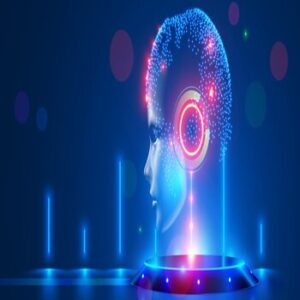Quantum Computing Applications
Quantum computing Applications

Quantum computing uses quantum mechanics, a branch of physics that explains the behavior of matter and energy at a tiny scale, to perform operations on data. Unlike classical computers that use bits with values of 0 or 1, quantum computers utilize quantum bits or qubits that can exist in multiple states simultaneously.
Qubits’ ability to be in a superposition state enables quantum computers to perform specific calculations much faster than classical computers. Additionally, quantum computers can leverage entanglement, a phenomenon where the state of one qubit depends on the state of another, to execute calculations impossible for classical computers.
How do Quantum Computers Work?
Quantum computers manipulate qubits, the fundamental components of quantum computing. Qubits can represent multiple values simultaneously through superposition, unlike classical bits limited to 0 or 1.
Quantum entanglement is a crucial operation in quantum computing, connecting qubits and correlating their states. Even if separated by large distances, the state of one qubit can influence the other. This property allows quantum computers to perform certain calculations much faster than classical computers.
The building block of a quantum computer is the quantum gate, which alters the states of qubits. Popular types of quantum gates include the Hadamard gate, placing a qubit into superposition, and the CNOT gate, performing conditional operations based on qubit states.
To compute on a quantum computer, a series of quantum gates transform qubit states to encode the solution to the problem being solved. The final state of the qubits provides the solution when measured.
Uses and Benefits of Quantum Computing
Quantum computing holds vast potential in various fields such as security, finance, military affairs, drug design, aerospace, utilities, polymer design, machine learning, AI, Big Data search, and digital manufacturing.
Compared to classical computing, quantum computing offers several advantages:
Faster computing: Excels at solving specific problems faster, like factorization and database searches, by performing multiple calculations simultaneously through quantum mechanics.
Improved security: Enhance security in cryptography by swiftly factorizing large numbers, and breaking current encryption methods. It also enables more secure encryption techniques.
Enhanced simulation: Provides a more accurate simulation of complex systems like molecules and chemical reactions, benefiting drug discovery and materials science.
Optimized optimization: Accelerates optimization problems, optimizing complex networks, financial portfolios, and power grids.
Advanced machine learning: Enhances machine learning algorithms, enabling precise predictions and insights. It excels at identifying patterns and correlations in large data sets.
Applications of Quantum Computing
Quantum computing finds applications in various domains, including:
Artificial Intelligence & Machine Learning: Tackles complex problems in AI and machine learning, outperforming traditional computers in accuracy and speed.
Quantum Cryptography: Focuses on secure key distribution, utilizing entangled qubit pairs that cannot be copied or measured without detection.
Drug Design & Development: Aids in designing drugs based on specific molecular properties, leading to more effective treatments for diseases like cancer and Alzheimer’s.
Financial Modeling: Revolutionizes finance by providing precise predictions of stock markets, and commodity prices, and optimizing portfolios.
Weather Forecasting: Improves weather forecasting by simulating weather patterns accurately, enabling better predictions of extreme events.
Cybersecurity: Quantum computing plays a vital role in cybersecurity, both by breaking current encryption methods and providing more secure encryption techniques like quantum key distribution. It also identifies vulnerabilities and enhances security systems.
Sources
https://www.ibm.com/topics/quantum-computing
https://research.aimultiple.com/quantum-computing-applications/

